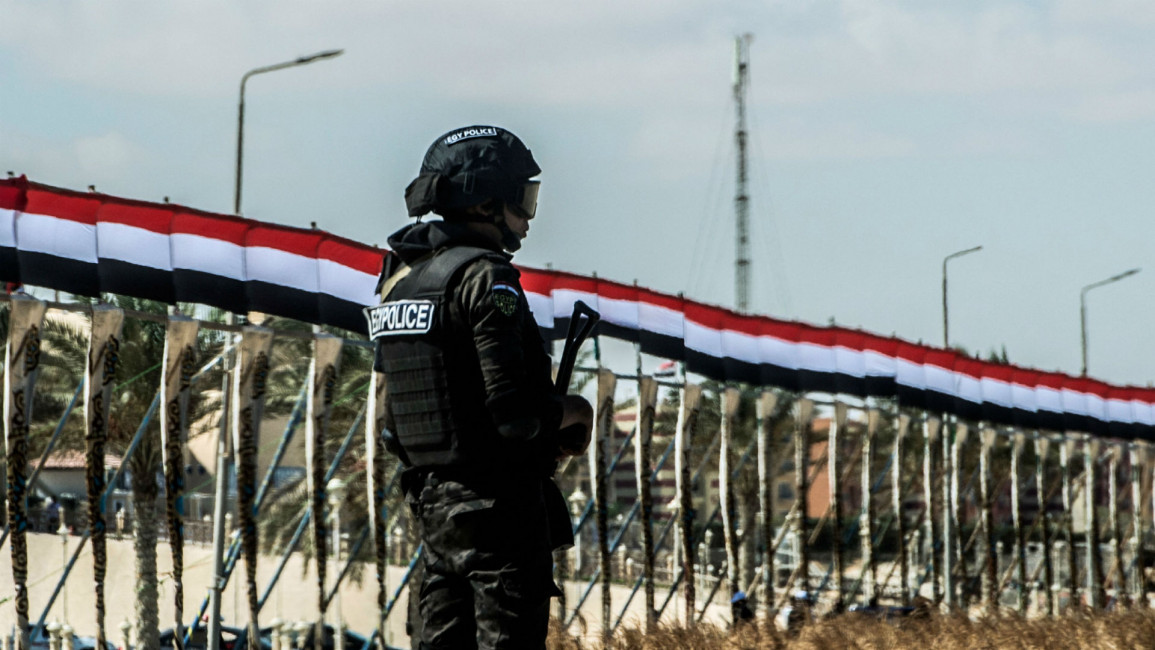Egypt creates own rights watchdog to whitewash Sisi regime
Egypt has created a new high-powered human rights watchdog agency, but its aim doesn't appear to be in protecting Egyptians from government violations, activists have said.
Instead, the body's primary mission appears to be in protecting the government from allegations of rights abuses and defending it on the international stage.
The new body reflects an attitude of the state under President Abdel Fattah al-Sisi that sees accusations of human rights violations as intended to undermine the government and cause instability at a time when it is facing militant threats and trying to rebuild a battered economy.
Officials have already started a campaign against "false rumours" and "fake news" and have in many cases detained those who speak out against the government.
The government has also sought to redefine or broaden human rights, declaring new "rights" to fight terrorism and protect the state.
Many see this as an attempt by the Sisi regime to legitimise abuses by security forces and detention of dissidents or draw the international community's attention away from political rights.
Its the so-called rights group's members are representatives of the foreign ministry, the military, the intelligence agencies and the interior ministry, which oversees a police force that has been accused of torture and forced disappearances, claims that are categorically denied by the government.
The mission of the body, according to a cabinet statement, is to "respond to claims" made against Egypt's human rights record and formulate a "unified Egyptian vision" that is stated during regional and international meetings.
Rights campaigners say the new body is a reincarnation of a near identical one that was in total charge of human rights issue between the 1980s and 2004, when it was dissolved.
In 2004, the government created the National Council for Human Rights, or NCHR, a quasi-state body that enjoys a margin of freedom and voices some criticism of officials and police.
Egypt's human rights record is being scrutinised more closely than at any time in decades, chiefly because of the large-scale crackdown that followed the 2013 ouster by the military, then led by Sisi, of Egypt's first democratically elected president Mohammed Morsi.
Egyptian authorities have jailed thousands of Islamists along with secular pro-democracy activists and rolled back freedoms won in the 2011 uprising, suppressed civil society groups, silenced critics in the media and slapped travel bans on dozens of rights activists, as well as freezing their assets.
Sisi, in office since 2014, claims his priorities are security and reviving the economy, devoting considerable resources to the fight against militants in the Sinai Peninsula and introducing reforms that analysts view as unrealistic to overhaul the economy.
He has publicly expressed his contempt for politics and his disapproval of the 2011 uprising, while projecting an image of himself as a savior or a patriotic, god-fearing leader determined to make his country stable and prosperous.
Bahieddin Hassan, a prominent rights campaigner who lives in exile in Paris, believes the creation of a new one to address the international community is rooted in fears that the US Congress may in the future seek cuts in Washington's military aid to Egypt - running at 1.3 billion US dollars a year - or that the EU could move to reduce aid or investment.
Hassam pointed to Sisi's recent decision to review a law that places draconian restrictions on civil society groups, a move he believes was taken under pressure from the US Congress and Germany, one of Egypt's largest European trade partners.
Washington suspended 195 million US dollars in military aid to Egypt in August 2017 over its human rights record.
The money was released in July, although the US State Department acknowledged remaining concerns over rights and governance.


![President Pezeshkian has denounced Israel's attacks on Lebanon [Getty]](/sites/default/files/styles/image_684x385/public/2173482924.jpeg?h=a5f2f23a&itok=q3evVtko)



 Follow the Middle East's top stories in English at The New Arab on Google News
Follow the Middle East's top stories in English at The New Arab on Google News


